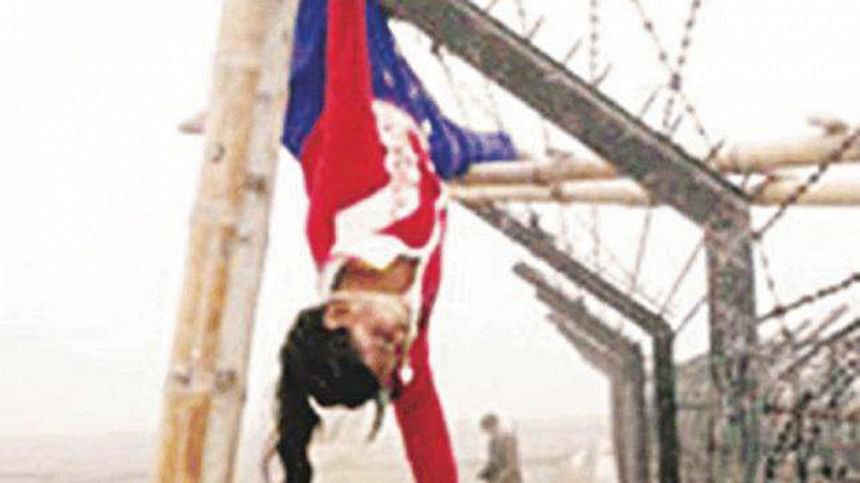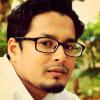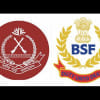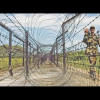BSF troops enjoy total impunity

Kabirul Hossain Molla’s offence was that he trespassed on Indian soil near the border in Satkhira on May 10. He wanted to bring some packs of tea leaves.
He was caught and brutally tortured allegedly by some members of the Indian Border Security Force. At one point, the BSF men poured petrol into his mouth and rectum. As his condition worsened, they left him on the no-man’s land, instead of giving him any treatment.
The 32-year-old died at Satkhira Sadar Hospital hours later.
“My brother was groaning in excruciating pain in the hospital bed… Before passing away, he described how inhumanely he was tortured,” Kabirul’s brother Rabiul Hossain told The Daily Star recently.
He said his brother could have been imprisoned, according to the law, for trespassing. But the BSF cruelty has shattered everything, pushing the poor family, including the deceased’s four-year-old child, into deep uncertainty, he said.
Kabirul is not the only Bangladeshi man killed by the BSF for trespassing.
At least 15 others have either been shot dead or tortured to death by them in the last five and a half months.
It is alarming as the figure is already equal to last year’s total number of border killings which have seen a sharp rise this year, after dropping the three previous years.
Data from rights body Ain o Salish Kendra (ASK) show that 46 people were killed along the Indo-Bangla border by the BSF in 2015. The num-ber came down to 31 in 2016 and 24 in 2017.
Rights defenders describe such killings of unarmed and defenseless people as cold-blooded murders.
Amid such a situation, a four-day biannual director general (DG) level talks between the BSF and the BGB ended in Dhaka yesterday.
Talking to reporters after the conference at the capital’s BGB headquarters, BSF Director General Rajni Kant Mishra termed border killings “unfortunate deaths” and said such incidents increased this year.
BGB chief Maj Gen Md Shafeenul Islam said, “We have raised our concern about the increased number of deaths on the borders.”
Border killings have continued for years despite commitment from top BSF officials that the number of such deaths would be brought to zero.
The latest border killing was reported on June 4, just a week before the start of the DG-level talks. On that day, another Bangladeshi national, Jahirul Islam, 22, was shot dead by the BSF on the Chapainawabganj frontier.
Besides, in the last week of April, BSF members tortured a Bangladeshi man by pulling out all 10 of his fingernails with pliers after he was caught for illegal entry.
Such incidents of torture have caught media attention and the BSF has been heavily criticised by human rights defenders.
Brad Adams, executive director of Human Rights Watch’s Asia Division, said despite promises by successive Indian governments to end abuses and hold its forces accountable, there appeared to be complete impunity for BSF soldiers.
“BSF personnel of all ranks implicated in serious rights abuses should be investigated by civilian authorities and tried in civilian courts,” he told The Daily Star in an email recently.
He mentioned that there has been a renewed push by the Indian gov-ernment to stop illegal cattle trade at the border since 2014. “However, a duty to prevent cattle smuggling or other illegal activities at the border does not give the BSF a licence to kill,” he said.
Brad claimed that rights activists working along the border to expose such abuses were also threatened and harassed.
Talking about the killings, former chairman of National Human Rights Commission Prof Mizanur Rahman said, “… If our citizens do not feel safe on the border, if they are mercilessly shot in violation of the basic norms and the fundamental postulates of contemporary international law and if we remain silent even after all that, I believe an injustice is being done to our citizens and our state.”
Referring to the present government’s role in eliminating all kinds of threat for India from inside the Bangladesh territory, he said, “Bangladesh always wants good relations with its neighbouring states … but it cannot be a one-way traffic.
“Silence on part of our ministry of home affairs on the issue is uncomfortable for us... We always demand that our ministry, diplomats and foreign offices become more vocal. If needed, they have to raise the issue at different forums.”
On May 30, an email was sent to the public relations officer of the BSF’s South Bengal Frontier for comments. But they did not respond.
Since 2000, more than 1,000 Bangladeshi nationals have been killed in border areas, according to rights defenders who described the areas as “killing fields”.
No one has ever been punished.
Of the killings, the Felani murder caught everyone’s attention. The 15-year-old was gunned down by some BSF members on January 7, 2011 when she, along with her father, was returning home from India through Anantapur border along Phulbari upazila of Kurigram.
The photo of Felani’s body hanging upside down from barbwire fence sparked outcry and condemnation throughout the country. More than eight years on, her family’s wait for justice seems far from over.


 For all latest news, follow The Daily Star's Google News channel.
For all latest news, follow The Daily Star's Google News channel. 








Comments